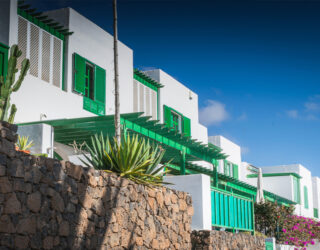Royal Decree 1312/2024 establishes a new registration procedure for short-term leases and creates the single digital entry point (Ventanilla Unica Digital) for Leases. This regulation, which shall apply from 1ST July 2025, seeks to comply with European requirements and to address the impact of short-term rentals on the housing market, prices and the habitability of urban and tourist areas.
On the 24th of December Spanish Official Gazette (BOE) published Royal Decree 1312/2024 (RD) regulating the procedure for the Single Registry of Leases and creating the Single Digital Entry Point for Leases for the collection and exchange of data relating to “short-term accommodation rental services” (the SARES). The RD entered into force on 2nd January 2025, although its provisions shall apply from 1ST July 2025.
As stated in the explanatory memorandum, the RD is part of the governmental actions promoted in recent years in the field of housing, taking the opportunity to comply with Regulation (EU) 2024/1028 of the European Parliament and of the Council of 11 April 2024 on data collection and sharing relating to SARESs. The aim is therefore to do double duty by complying, on the one hand, with the European regulation and, on the other, it is said, by tackling a problem which, according to the RD, causes a withdrawal of housing from the market and an increase in prices, which can have a negative impact on the habitability of urban and tourist centers.
Short-term accommodation rental service (SARES)
The RD defines SARES as the short-period lease of one or several units, for tourist purposes or not, provided for remuneration, on a professional basis or not, on a regular basis or not, being applicable the seasonal lease regulation of article 3.2 of the Urban Leases Law of 1994 (LAU), as well as that applicable to boat rentals subject to the European regulation, that applicable to tourist leases and its sanctioning regime, and the consumer and user protection regulations.
A unit may be the whole or part of a furnished accommodation, where permitted by regulations, or a ship, boat or marine craft. Hotels and similar accommodation, including resort hotels, suite or apartment-hotels and motels, hostels, camping grounds and caravan parks, are not units and therefore are not subject to the registration and reporting regime discussed below. All as defined in NACE Rev 2 Group 55 of Regulation (EC) No 1893/2006 of the European Parliament and of the Council. This generic reference to the concept of hotels, etc., contained in European regulation may require a possible work of integration and fitting with the definitions created by the Spanish regional tourism regulations.
As we have seen, the RD speaks of leasing for a “short period” (the European regulation speaks of a period “typically” for less than a year), but the fact is that the RD also refers to the cause of the lease, stating as a principle that the concept of SARES refers to rentals whose primary purpose is other than the rental of housing, which are linked to temporary reasons, such as holidays or tourism, work, studies, medical treatment or any other that does not involve a permanent need for housing, and provided that the units have adequate equipment, furniture and fixtures and fittings.
The obligations imposed by the Royal Decree
The RD obliges the host, or lessor, to obtain a registration number for each unit subject to the SARES, and to communicate the registration number to the online platforms. The RD defines hosts as those who provide or intend to provide a SARES for remuneration through an online platform, adding that, in order to be able to “offer” their services through these platforms, they must obtain the registration number. The RD does not differentiate in a clear manner between pure advertising activity and online transactional activity. It should be noted that the European regulation excludes from its scope webpages or other electronic means which connect hosts with guests without any further role in the conclusion of direct transactions.
Once the registration number has been obtained, every twelve months an informative model of leases must be provided, which shall contain at least an anonymized list of the leases set up, as well as the identification of the purpose for which the type of lease has been justified.
For their part, platforms are obliged by the RD to include functionalities for hosts to identify the units offered by means of the assigned registration number, ensure that hosts provide and clearly display the registration number in their ads, perform random and periodic checks of lessors’ declarations, inform the Single Digital Entry Point and the hosts about the results of these checks, and comply with administrative resolutions ordering the removal or disabling of ads linked to a suspended or withdrawn registration number. To make this obligation viable for the platforms, the RD creates the Single Digital Entry Point for Rentals.
The Lease Register and the Single Digital Entry Point for Rentals
In order to obtain the registration number, the host must apply to the Land Registry corresponding to the place of registration of the property or, in the case of boats, to the Movable Property Registry of registration of the boat or craft. The application must state, among many other things, the maximum number of lessees that can be accommodated in the unit, or the category or categories and types of lease for which it intends to obtain a registration number, where applicable, these three categories may be simultaneous: (i) properties, rooms or partial units of property intended for SARES for non-tourist purposes; (ii) the same, but for tourist purposes, or (iii) floating vessels or other properties. The registrar must verify, among other matters, that, if the unit is subject to an enabling title regime, that said title or a responsible declaration has been presented and also that there are no agreements of the community of neighbors against it, which must logically be understood within the limited framework of the registrar verification capacity.
With the RD, the Land Registry thus takes on an additional competence, to some extent of a statistical or administrative control rather than of a substantive nature. In this regard, it should be remembered that the registration of urban leases (not a mere reference by marginal note, which is what the RD does) had already been regulated for years by Royal Decree 297/1996, of 23 February, on the registration in the Land Registry of Urban Lease Contracts. The latter Royal Decree provides for the registration of all urban leases, whether for housing or for use other than housing. Therefore, it could be the case that a specific lease has a double reflection in the Land Registry: the one derived from RD 1312/2024 and the one derived from RD 297/1996. Given the different purpose of one and the other registration mechanism, although nothing is said in RD 1312/2024 in this respect, this double registration seems possible, even in the case of long-term leases (for which the RD provides for a voluntary registration number).
The Single Digital Entry Point (Ventanilla Unica Digital) is a requirement of the European regulation that replicates the RD for Spain. According to such regulation, the creation of a SARES registration procedure also requires the creation of a Single Digital Entry Point. The point acts as a single national gateway for the electronic transmission of data between the online platforms and the competent authorities. The digital entry point reports to the Ministry of Housing and Urban Agenda and is responsible for receiving and transmitting the data provided by the platforms, guaranteeing confidentiality, integrity and security in the processing of personal data. In addition, the point facilitates the transmission of activity data per unit, together with the registration number, the specific address of the unit and the URLs of the advertisements published on the platforms. It also allows random and regular checks of landlords’ declarations and provides a technical interface for the competent authorities to receive the data necessary for the fulfilment of their tasks.
The registration, suspension and deletion of registration numbers will be notified telematically by the Single Digital Entry Point to the regional authorities and local councils, so that they can exercise the inspection and control functions established in their respective regulations.
As can be intuited, the RD is a detailed regulation which, therefore, we have only outlined its main aspects, without speculating on deeper issues such as the operational impact that could eventually be caused by the arrival of a flood of applications subject to this RD on our Land and Movable Property Registers, or its interrelation with other information exchange mechanisms such as Royal Decree 933/2021, of 26 October; nor, even less, to make a forecast of the effectiveness of RD 1312/2024 with respect to its intended purposes, which only its practical application will make it possible to verify in a short period of time.






